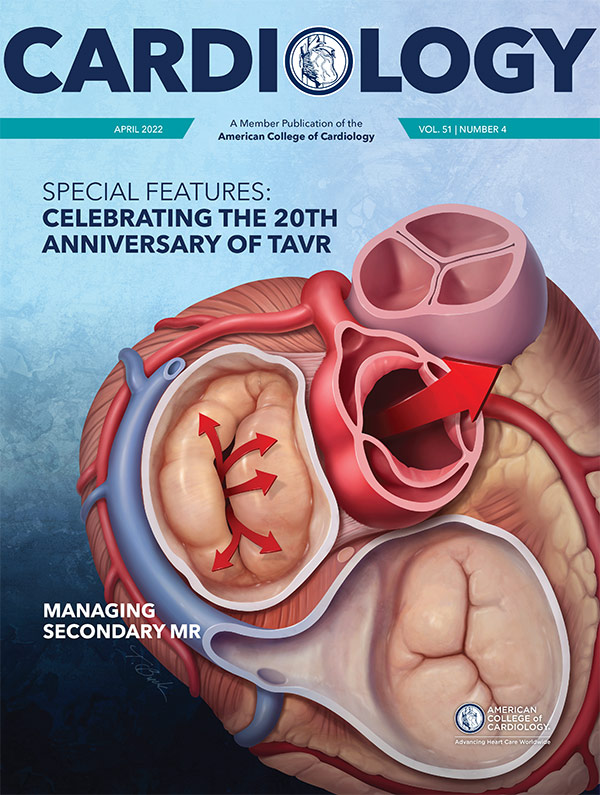Heart of Health Policy | Navigating the Path to Value-Based Care

The disjointed nature of the U.S. health care system, including outdated reimbursement models that disincentivize care coordination and quality, often create impediments to achieving the ACC's Mission to transform cardiovascular care and improve heart health. Overcoming these impediments and helping to lead the transition to improved care models that strengthen value and patient outcomes are among the College's top Advocacy priorities.
ACC Advocacy leaders Samuel O. Jones, MD, MPH, FACC; William A. Van Decker, MD, FACC; and Paul N. Casale, MD, MPH, FACC, shared their thoughts with Cardiology on the future of value-based care and the importance of advancing meaningful solutions that will ensure clinicians and patients alike can benefit.
Where are we on the path to value-based care?
Jones: We are over a decade past the passage of the Affordable Care Act. While many strategies to achieve value-based care have been attempted and continue to be tested, there is still no clear single solution to moving away from fee-for-service and into a payment system that decreases cost and improves quality while remaining patient-centered and aligned with clinical practice. As health care spending continues to grow, there is increasing recognition that the U.S. health care system is not providing value for the immense dollar spent. Multiple reimbursement payment reductions are creating an "SGR 2.0" environment without an easy fix on the horizon. These cost pressures will continue to push value-based care back to the forefront of conversation.

William A. Van Decker, MD, FACC
What have been the barriers to achieving value-based care?
Van Decker: The fact is that the RVU-based payment system is still in place and not going away anytime soon as the underpinning, especially for cardiology and other specialties. Approaches such as bundled payments, accountable care organizations (ACOs), cost efficiency measures, and concerning capitated payments need to construct quality and risk cost sharing in a way that promotes alignment across clinicians and sites of care while rewarding the clinician for their key role and maintain practice stability. Many groups still find it difficult to achieve shared savings and aligned incentives. We need to avoid both unintended consequences and evaluate models that work for all members (i.e., those in private practice, employed, urban, rural, electrophysiology, interventional cardiology, small groups, large groups, etc.) and preserve the physician-patient relationship and shared decision-making process.
What does the ACC view as the most important priorities to achieving value-based care models for cardiology?
Visit ACC.org/Advocacy for more on ACC Advocacy Health Policy Priorities and Principles. Value-Based Care was an important topic at ACC's Cardiovascular Summit in February. Access the meeting on-demand through May 31. Click here to learn more.
Jones: The top priorities are to ensure that future payment models are patient-centered, address health equity, promote innovation and improvements in cardiovascular care, and highlight the value of clinician work and coordination in the care of the patient. Alignment of goals and incentives across patients, providers, payers and health systems will be key to achieving these priorities.
How is the ACC advocating for its members?
Van Decker: The conversation around value-based care is crowded. The Center for Medicare and Medicaid Innovation leads much of the conversation, but other payers and organizations are also engaged in their own efforts to promote their ideas of the best path forward for improving the cost and quality of care. The ACC's Health Affairs Committee, Partners in Quality Subcommittee and Population Health Management Work Group are playing critical roles in analyzing existing and emerging models at the state and federal levels; identifying the pros and cons; and effectively communicating the impact of these models on practicing cardiologists and their patients back to policymakers and payers. Many models and their local effects will need to be explored and analyzed.

Paul N. Casale, MD, MPH, FACC
Casale: The ACC continues to convene the Value-Based Care in Cardiology Forum to bring together payers, policymakers, employers and others engaged in the development of value-based payment models. It is important to have the ACC leading the conversation around the optimal care models that should inform the design of new payment models for the care of cardiovascular patients. Over the past three years, the Forum has addressed the need to align clinical definitions for episode-based payment and the importance of primary care-cardiology collaboration in the management of patients with chronic cardiovascular conditions, such as newly diagnosed atrial fibrillation. In addition, the Forum has convened stakeholders for discussions around potential models for care redesign efforts based on case studies from ACC members representing a variety of geographic and socioeconomic practice settings across the country.
What is one thing members should do as the transition to value continues?
Casale: Although payment is still predominantly fee-for-service, successful transition to value-based care and alternative payment models requires preparation. Preparation includes determining who is leading value-based care and quality efforts at the practice, hospital or health system level; assessing what data are being used by health systems, payers and others to assess patient populations and performance; and evaluating organizational/system readiness to participate in value-based payment models. The ACC's APM Framework found on ACC.org/APM is a great place to start.

Samuel O. Jones, MD, MPH
Jones: Members should understand that despite many barriers, value-based care continues to move forward. The most important thing is to pay attention to what is going on. Even if members are not participating in an established alternative payment model, efforts to lower costs and improve the quality of health care will impact everyone. The more everyone is aware of changes taking place, the more we can prepare and advocate for what's best for clinicians and patients.
Van Decker: Health care delivery is local. Members should learn from local leaders they trust and share their experiences with each other, whether good or bad. They should also share their lessons learned with the ACC. These lessons learned will not only help educate other members facing similar challenges, they can help inform ACC discussions with key payer, government and industry stakeholders focused on deriving optimal design of value-based care for cardiology.
Clinical Topics: Arrhythmias and Clinical EP, Cardiovascular Care Team, Implantable Devices, SCD/Ventricular Arrhythmias, Atrial Fibrillation/Supraventricular Arrhythmias
Keywords: ACC Publications, Cardiology Magazine, Patient Protection and Affordable Care Act, Health Expenditures, Accountable Care Organizations, Atrial Fibrillation, Cardiologists, Goals, Health Equity, Medicaid, Motivation, Population Health Management, Population Health Management, Trust, Medicare, Medicare, Quality of Health Care, Primary Health Care, Cardiology, Electrophysiology, Patient-Centered Care, Health Policy, Socioeconomic Factors, Cost Sharing, Government, Hospitals
< Back to Listings

